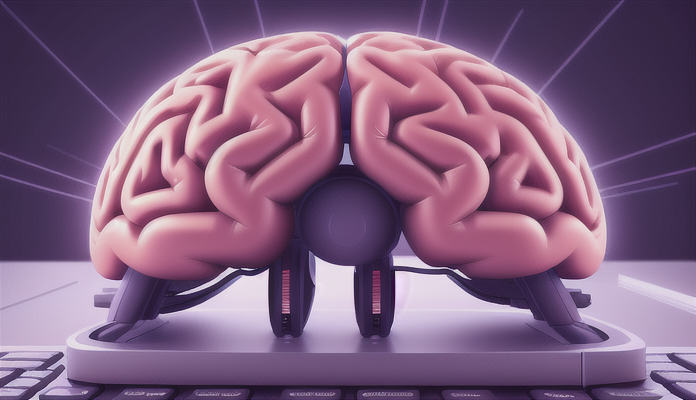Our mind functions much like a complex computer program, overseeing the operations of our bodily systems, guiding our actions, and ultimately, determining our destiny. As the architects of this intricate system, we exercise a profound influence over its operations. This architecture of our consciousness can either be shaped by external influences or consciously crafted by us.
Throughout our lives, we absorb a variety of mental conditionings—values, beliefs, habits, and ideas passed down to us by society, family, and peers. These conditionings are akin to the coding in a computer program, provided by external programmers. Without conscious awareness, these external codes can direct our life’s trajectory.
However, once we awaken to the realization that we’ve been functioning on externally-imposed codes, we can begin to consciously take charge of the programming process. This awakening is the first step towards reclaiming control and consciously creating our destiny.
Just like in a computer program, the foundational unit of our mental program is our thoughts. In the words of the ancient wisdom, “Watch your thoughts, they become your words; watch your words, they become your actions; watch your actions, they become your habits; watch your habits, they become your character; watch your character, it becomes your destiny.”
This cycle, analogous to the structure of a computer program, begins with our thoughts—the basic coding that drives the entire system. Thoughts, when not mindfully curated, can be influenced by external conditionings, thus leading to words and actions not truly representative of our inner selves. However, by consciously observing and programming our thoughts, we can create words that resonate with our true essence, leading to actions that align with our desired goals.
As these actions are repeated, they crystallize into habits—these are our subroutines, the coded patterns that automate our behavior. These habits, once ingrained, shape our character—our software’s overall function. The culmination of this character, operating on the codes we’ve consciously or unconsciously accepted, ultimately determines our destiny—the output of our life’s program.
- “Watch your thoughts, they become your words.”Just as the seed of any computer program is the source code written by a programmer, our thoughts are the source code of our lives. Each thought is like a line of code, seemingly insignificant on its own, but collectively forms a complex system. These lines of code, when executed, become our words, akin to the output displayed on a computer screen. We can compare negative thoughts to coding errors or bugs that result in incorrect outputs, while positive thoughts are like well-structured code that generates the desired result.
Our thoughts are the genesis of our reality. They are the silent whisperings that shape our beliefs and perceptions. The language we use, the words we speak, are a mirror to our thoughts. If our thoughts are laced with negativity or fear, our words will reflect this, just as if our thoughts are filled with positivity and optimism, our words will echo the same. Thus, by being mindful of our thoughts, we can begin to consciously shape the words we use - “Watch your words, they become your actions.”If words are the outputs displayed on a computer screen, actions are the practical applications of those outputs. They’re akin to a user interacting with a program, clicking buttons, and navigating menus, based on the information displayed. Words guide actions just as outputs guide a user’s interaction with a software.
Words have power; they are the bridge between our inner world and our outer reality. The words we utter, to ourselves or others, are like a self-fulfilling prophecy. They can motivate or discourage action. Hence, it’s essential to use words wisely. Speaking with intention can align our actions with our values and aspirations, and pave the way for constructive, purposeful actions. - “Watch your actions, they become your habits.”Actions repeatedly executed, like a user performing the same sequence of interactions with a software, can form habits. These are comparable to macros or scripts in a computer system: sets of instructions that are automatically run to perform a specific task. When a particular sequence of actions becomes beneficial, the system can automate it, forming a habit.
Actions repeated over time solidify into habits. It’s through our daily actions that we begin to cultivate the habits that determine our routines and lifestyle. If we choose positive actions, we’re more likely to form beneficial habits; on the other hand, if our actions are negatively oriented, they may foster harmful habits. Mindful actions can help us to shape empowering habits that promote growth and well-being. - “Watch your habits, they become your character.”Over time, these automated scripts or habits form the ‘operating system’ of our character. Just as an operating system governs how a computer functions, our character guides our behaviors, responses, and decisions. It’s the interface through which we interact with the world, reflecting our core values and principles.
Our habits, once ingrained, become a part of our character. They become automatic behaviors that we exhibit without much conscious thought. If we’ve formed habits of honesty, kindness, and resilience, for instance, these will shine through in our character. Observing and managing our habits can guide us in the construction of a character we’re proud to embody, a character that reflects our highest self. - “Watch your character, it becomes your destiny.”Finally, our character shapes our destiny, much like how the operating system and software determine the applications and capabilities of a computer. The long-term outcomes of a computer system can be predicted based on its software and operating system, just as the trajectory of our lives—our destiny—can be discerned from our character.
Character is at the heart of our identity. It’s how we behave when no one’s watching; it’s the values we uphold, the choices we make. Over time, our character shapes our life’s path—our destiny. A strong, virtuous character can lead to a fulfilling and successful life. It’s the most significant and enduring aspect of our being that can leave a profound impact on the world.
Hence, to program our desired destiny, we must start at the beginning, at the level of our thoughts. By becoming the conscious programmers of our thoughts, we can ensure that the subsequent chain—words, actions, habits, and character—are all aligned with our true selves and the life we aspire to lead. This consciousness-driven programming allows us to overwrite the externally-imposed codes, enabling us to journey towards a destiny of our choosing.





